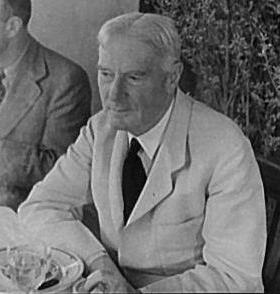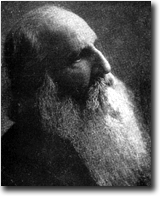A Quote by Otto Weininger
The deepest, the intelligible, part of the nature of man is that part which does not take refuge in causality, but which chooses in freedom the good or the bad.
Related Quotes
There are hidden contradictions in the minds of people who "love Nature" while deploring the "artificialities" with which "Man has spoiled Nature.'" The obvious contradiction lies in their choice of words, which imply that Man and his artifacts are not part of "Nature" : but beavers and their dams are.
A painting is an object which has an emphatic frontal surface. On such a surface, I paint a black band which does not recede, a color band which does not obtrude, a white square or rectangle which does not move back or forth, to or fro, or up or down; there is also a painted white exterior frame band which is edged round the edge to the black. Every part is painted and contiguous to its neighbor; no part is above or below any other part. There is no hierarchy. There is no ambiguity. There is no illusion. There is no space or interval (time).
Therefore the good man ought to be a lover of self, since he will then both benefit himself by acting nobly and aid his fellows; but the bad man ought not to be a lover of self, since he will follow his base passions, and so injure both himself and his neighbors. With the bad man therefore, what he does is not in accord with what he ought to do, but the good man does what he ought, since intelligence always chooses for itself that which is best, and the good man obeys his intelligence.
When we say, "I take refuge in the Buddha," we should also understand that "The Buddha takes refuge in me," because without the second part the first part is not complete. The Buddha needs us for awakening, understanding, and love to be real things and not just concepts. They must be real things that have real effects on life. Whenever I say, "I take refuge in the Buddha," I hear "the Buddha takes refuge in me."
It is alone that part of the external universe which we call material which acts on man through his senses - that part of which we ordinarily feel our knowledge to be the surest; but in reality, strangely enough, as will soon appear, this is one of the aspects of the external world, of which we can know nothing.
The worst part about loving someone, Merripen, is that there will always be things you can't protect her from. Things beyond your control. You finally realize there is something worse than dying . . . and that is having something happen to her. You have to live with that fear always. But you have to take the bad part, if you want the good part." Kev looked at him bleakly. "What's the good part?" A smile touched Cam's lips. "All the rest of it is the good part," he said, and went.
This thou must always bear in mind, what is the nature of the whole,
and what is my nature, and how this is related to that, and what
kind of a part it is of what kind of a whole; and that there is no one
who hinders thee from always doing and saying the things which are
according to the nature of which thou art a part.






































